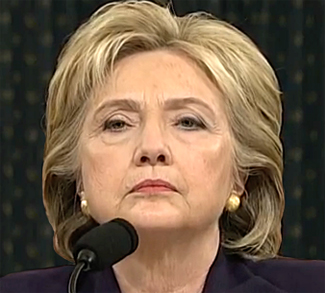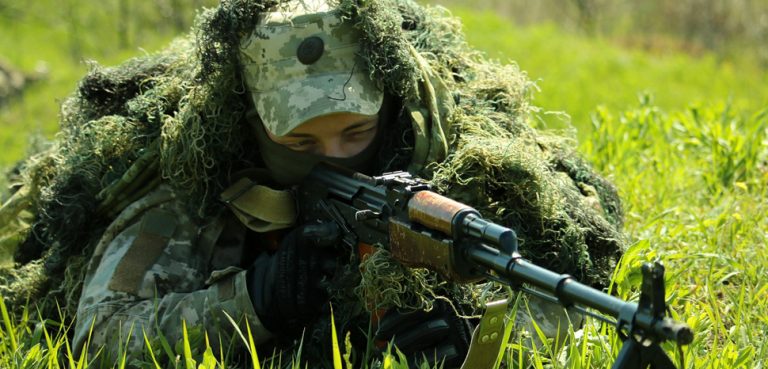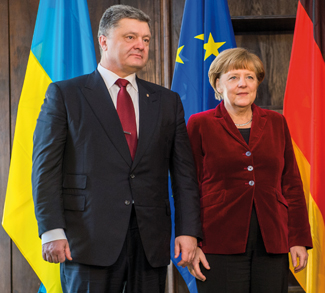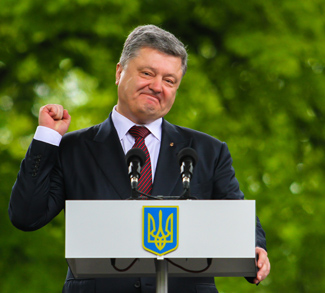Hillary Clinton will need to dedicate more time to Bosnia and the Balkans than any president since Bill Clinton. While the prospect of renewed conflict in Bosnia remains relatively low in the short term, the former Yugoslavia republic has become another proxy battle between the West and Russia. Under a Clinton administration, this is likely to intensify, made more complicated by overlapping British, German, and Turkish interests in the Balkans and in relation to Russia.
While Yugoslavia disintegrated between 1990 and 1995, engulfed in two bloody wars in Croatia and Bosnia, Russia was experiencing its own difficulties with the break-up of the USSR and subsequent economic collapse. Russia under Boris Yeltsin largely avoided engaging in Yugoslavia, instead deferring to US and European objectives and leadership.
Putin has done the opposite in recent years, awakening Russian and Serbian dreams of a pan-Slavic link between Russia and its Orthodox Christian cousins in the Balkans. Russian relations with Serbia have generally been limited to political and diplomatic support such as the July 2015 veto of a UN Security Council Resolution that would have classified the July 1995 Srebrenica genocide as genocide and condemned genocide denials. Russia, however, stops short of major investments or extensive military cooperation with Belgrade. Somewhat akin to the Russian-Ukrainian relationship, the pro-West factions within Belgrade are pursuing membership in the European Union as well as possible NATO membership. While Putin might well privately support their EU membership for the opportunity to have a Trojan horse with veto power to block anti-Russian policies, he will fight against NATO membership.
The end of the Cold War had threatened British force projection and influence on the world stage.
Meanwhile, tensions have increased in Bosnia , where the war-ending Dayton Agreement, which also framed the dysfunctional constitutional order, has been undermined by Milorad Dodik, the ultra-nationalist Serb leader of the Republika Srpska entity, which enjoys partial autonomy within Bosnia-Herzegovina. Despite attempts by the international community and Bosnia’s Constitutional Court to stop him, Dodik went ahead with (and won) his long-threatened referendum on whether January 8th (an Orthodox Serb religious holiday) would also be classified as the National Day of Republika Srpska. It is seen as a precursor to a second referendum in 2018 on independence for the RS from Bosnia. At that point, tensions will be at their highest with a high probability of conflict as the majority Bosnian Muslims would be left with little choice but to defend the territorial integrity of their country, while an ever decreasing minority — Bosnian Croats — are likely to exploit the situation to form their own breakaway entity in the Herzegovina region.
While Serbian Prime Minister Aleksander Vučić has fallen in line with British, German, and American demands in opposing the increasingly confident Dodik and his nationalist rhetoric, including not supporting the referendum, Dodik continues with his ultra-nationalist stance thanks to the support of Vladimir Putin. The Russian president has increased his presence in the RS over recent years, celebrating the Slavic/Orthodox link between Russians and Serbs and using Dodik as an agent of chaos in the Balkans. It forms part of Putin’s strategy: firstly to expand and protect Russia’s sphere of influence and presence, and secondly, to ferment problems for the West, especially the EU. The referendum result undermines the viability and power of the central government in Sarajevo, which then feeds into Dodik’s push for secession. The short-term economic and political instability and the medium-term potential for conflict naturally create problems on the EU’s periphery and undermines the now German-led project to expand the European Union, while at the same time strengthening Russia’s position and bargaining power.
The western Balkans has been left under the supervision of the European Union for the past 10 years, which perhaps explains why there has been limited economic and political progress in the non-EU states of Serbia, Bosnia, Kosovo, and Macedonia. By its very nature, the European Union is not the best conduit for instilling order and advancing necessary reforms — divergent and, at times, diametrically opposed member state objectives and alliances make a forceful common policy difficult to implement.
In Montenegro, the October 16 general election returned the pro-West governing party, the Democratic Party of Socialists, to power with 40% of the vote despite losing their majority. The vote had been a litmus test on whether the country would continue with Western integration. Such steps are likely to continue, with NATO membership, which was already on offer, the most likely route toward neutralizing Russian involvement and influence in Montenegro. This would then increase the pressure for neighboring Serbia and the RS in Bosnia to move further toward Western integration.
A Trump presidency, however, remains a possibility. Such an outcome would complicate the situation further if Trump follows through on adopting a detached and isolationist foreign policy. The US would likely cease to be a major player in the Balkans going forward, leaving the Balkans for Russia, Turkey, Germany, and the United Kingdom to fight over.
Turkey maintains its interest in the Balkans, especially in Bosnia and the Muslim region of Sandzak that straddles both Serbia and Montenegro, on account of its history as the old imperial power. However, the interplay between German and British objectives is of significant interest in relation to their respective Russia policies and to each other. The UK has demonstrated a strong pro-Serbian bias since the 1870s during a string of Orthodox Christian uprisings in Serbia, Bosnia, and Bulgaria against the Ottoman Empire and the ensuing Great Eastern Crisis of 1875–78. This continued throughout the decades, including providing support to the royalist (and Nazi collaborator) Chetniks during World War II before shifting its support to Tito’s Partizans.
For London, the great strategic threat in the Balkans has been Germany, in addition to the traditional threats posed by Russia and Turkey. Before the Serb monarchy was abolished in 1945 Britain and Germany had vied for direct influence over the two Serb dynasties that ruled Serbia and the Kingdom of Yugoslavia. While the Obrenović monarchs looked to Berlin, the Karađorđević line would lean toward London. British support for the 2015 UNSC Resolution over Srebrenica should partially be viewed as a British attempt to reassert influence over Belgrade, at Berlin’s expense.
British support for the Milošević regime’s attempts at maintaining Yugoslavia in the early 90s, with more centralized power in Belgrade — in effect creating a Greater Serbia — was grounded in London’s desire to maintain a strong, unified Yugoslavia, over which it would hold influence. Such a Yugoslavia would act as a bulwark to a then newly unified Germany positioned to be the leading European power that would drive the European Union project. Germany’s historic influence over Slovenia and Croatia would, in turn, be diminished while a large, unified Yugoslavia would neutralize German dominion over the Balkans and act as an additional check on German leadership across the continent.
Germany’s push for the recognition of Slovenian and Croatian independence and European Community’s initiatives to install a peacekeeping force and a no-fly zone over Croatia as the war intensified throughout 1991 was juxtaposed to the British strategy. London initially led from the back by blocking recognition, making it clear that intervention would not occur and instead implementing a containment strategy. Helped by Washington’s willingness to defer to Britain’s judgement, London would eventually take the initiative by leading peace negotiations, gaining French support and pushing through a UN arms embargo, which guaranteed Serbia’s continued military dominance.
The end of the Cold War had threatened British force projection and influence on the world stage. Its geopolitical status was set to become commensurate with its economic status, in turn bringing an end to its role as the leading European power and most reliable American ally. A continent increasingly dominated by Berlin and Paris, pursuing deeper integration, would have left Britain on the fringes of decision making and influence. By adopting the stance they did between 1990–1992, the British were able to neutralize any hope of a common European foreign and security policy and preserve their independence and dominant status within Europe.
In 2017, British foreign policy is likely to adopt a similar strategy in its attempts at maintaining its geopolitical status post-Brexit. Having increased pressure and rhetoric over Russia throughout 2016 they will be looking to a Clinton presidency to cement their leading position as the US’ most useful ally in Europe and geopolitical supremacy. It is a pattern that plays out repeatedly, with the foreign policy establishment unable and unwilling to let go of their position on the world stage. The importance placed on the renewal of Trident was a clear sign of such sentiment.
However, the UK’s Balkan and European foreign policy objectives are dependent upon the supposed threat posed by Putin. Foreign Minister Boris Johnson called for war crimes investigations over Russia’s bombing of Syria, with French President Francois Hollande echoing those words, leading to the cancellation of a Putin-Hollande meeting.
Moreover, British Prime Minister Theresa May has made it clear that London will continue to play a leading role in European Union affairs until Brexit is finalized. While this is partly a bargaining tactic to force European concessions, lest the UK were to create a stalemate on a host of issues, it will predominantly be centered on foreign policy issues — both to stifle a German dominated foreign policy stance and to protect its own position. Part of the strategy will involve continuing David Cameron’s role in maintaining EU sanctions against Russian banks, energy companies, and weapons manufacturers, in addition to leading Kremlin figures, as demonstrated by a failed British and French attempt to implement further sanctions over Russia’s bombing of Aleppo during a recent EU summit. The pre-existing sanctions will, however, remain in place, particularly as NATO prepares to deploy tank and infantry divisions across the Baltics.
Britain does not have the capability to go it alone, especially against Russia, which is partly why it turns to France for support. A secondary aim is to distance France from Germany. In the event of a Clinton presidency, the United Kingdom will see its close ties to Belgrade as a key element in preserving British influence, power and utility to Washington within the context of stifling Russian influence in the Balkans. London holds disproportionate influence and power in NATO and will, therefore, push the Balkan states toward NATO membership and not necessarily EU membership, which would benefit Germany.
London will also understand that Hillary Clinton will seek to preserve Bill’s legacy in the Balkans. The Dayton Agreement and Bosnia’s territorial integrity cannot be threatened. Additionally, the US and Europe cannot afford increased tensions or the outbreak of war in Bosnia over the coming years, requiring them to neutralize the threat Russia and Dodik present. Clinton’s strong and hawkish anti-Putin policy is clear — she will adopt a more confrontational stance in Syria, Ukraine and the Balkans.
Conversely, a Trump presidency would almost certainly strengthen Russian influence in the Balkans, jeopardize Britain’s position as the leading anti-Russian European power and make a joint British and French soft power strategy in the former Yugoslav republics more likely. The present complexities of the situation will be multiplied. A Trump victory would also increase Turkish hopes of reclaiming its imperial influence in the region, particularly in Muslim-majority Bosnia-Herzegovina, Sandzak and Kosovo. A full-scale American withdrawal would leave Bosnian Muslims completely reliant on Turkish support going forward. Russian interests in the Balkans are largely ad hoc and superficial and so the possibility exists, however small, for Ankara to exploit its improved relations with Moscow to bring about an agreement over spheres of influence.
The opinions, beliefs, and viewpoints expressed by the authors are theirs alone and don’t reflect any official position of Geopoliticalmonitor.com.




